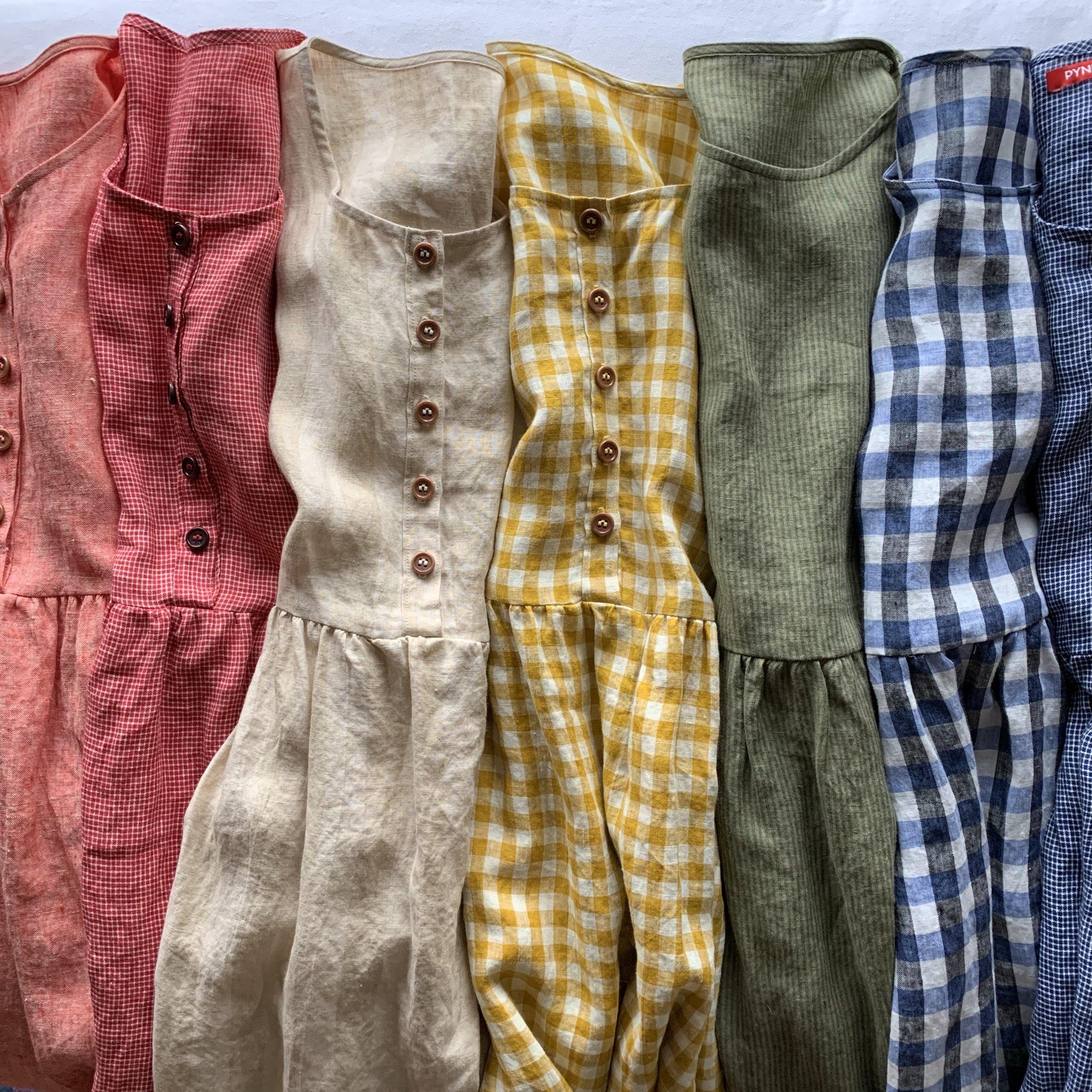As consumers, we are learning that synthetic materials are damaging to our planet (polyester fibers are now found in our oceans, a run off from the textile waste in landfills.) The good news? Natural fiber fabrics, like linen, are becoming more popular. Here’s some background information on what Linen is, and why you should wear it!
What is Linen?
Linen is a natural fiber fabric, made from the stalks of the flax plant, with a beautiful blue flower when in bloom. It’s hardy plant that grows well in damp conditions - Ireland was known for its quality flax crops and Linen, up until the 1800’s, but nowadays Northern Europe supplies the flax used for most good quality Linen. It also grows well in poor soils, interestingly, the flax plant doesn’t deplete the soil it’s grown in, it actually adds nutrients back into the soil. Flax plants are harvested and prepared for weaving by going through a laborious process of drying, threshing and retting. This time consuming process is what makes linen a more costly material compared to other fabrics. When the finished material is ready to be spun into yarn, it resembles bunches of long, blond hair, hence the term “flaxen” for light haired folk. The production of linen uses five to twenty times less water and energy than the production of cotton or synthetic fabrics, making it a much more environmentally friendly fabric.
Another reason to love Linen? It can be biodegradable and recyclable! Pyne & Smith linen scraps are sent to quilters, crafters, and to a company that re-purposes the scraps into car seat covers!
Why Wear Linen?
We often think of linen as a warm weather textile - it’s well known for being the only fabric to wear in the heat, because it wicks moisture away from your body, keeping you much less sweaty! Linen is just as effective in cold temperatures - the fibers are hollow, making it a natural insulator, so during the colder months, wearing layers like tights and sweaters with linen, you’ll trap that warm air around your body, keeping you warm and making those linen dresses even more versatile.

Linen is non-static and non-allergenic, making it a good choice for sensitive skin. Feels a bit stiff at first? Don’t fret, it will become buttery soft with washing, it’s a fabric that improves with time. It also wants to repel stains, so if you spill, it’s much more resilient than other fabrics. (Worried about stains? Dawn dish soap works so well for nearly all stains!)
Those creases that linen is known for? Embrace the wrinkles - the texture of linen is beautiful, just another reason to adore this natural, earth friendly fabric.
